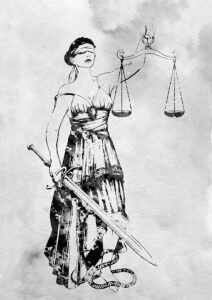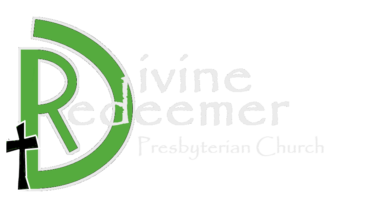
Of Justice and Righteousness: Biblical concepts to guide us in troubled times
Today I begin a series of messages about Justice and Righteousness, both of which are central concepts within our Scriptures. I am doing so because across the nation and even the world today we are hearing voices long silenced cry out for various forms of justice:
-reform to the criminal justice system
-justice in race relations
-economic justice
-gender justice
In the Hebrew Scriptures the two words that describe the foundation stones for the community of God’s people are:
Mishpat, typically translated Justice
and
Tzedakah, typically translated Righteousness
These two are quite often paired in the same sentence because they are two sides to the same coin. Just like the Two Great Commands to Love God and to Love Others which cannot be separated, for we cannot fulfill one without the other. When we love God we are immediately convicted to love what God loves and has made. And when we Love our Neighbor, we are in essence also loving God, for we recognize that others are made in the image of God and are the temple of God’s very Spirit.
In a similar way, Justice and Righteousness go hand in hand. We cannot fulfill one without the other for they require one another. Typically, Justice—Mishpat is understood to be the justice that is delivered by a judge or a court of law. It is the distribution of the rule of law without prejudice. In our society we often portray Blindfolded Justice with her scales to symbolize that justice is not to be a respecter of persons, or status, or wealth, but equally and evenly weighed out for any and all who come before her. The Hebrew scripture understands that without a rule of law, equally and independently applied, a society cannot remain peaceful. The unjust application of the rule of law to some but not to others because of their wealth, their privilege, their position or the color of their skin will require the intervention of God and God’s prophetic agents to make right the wrong.
Righteousness—Tzedakah is perhaps best translated social justice and refers to a different dimension of fairness within society. In the Hebrew understanding of the world, “The earth(land) belongs to Yahweh, and all that it produces; the world and all of its inhabitants.” Ps. 24:1. Everything belongs to God, our role is to steward the gift according to the wishes of the Creator. The Creator gave creation to be the means of supporting ALL the creatures not just the few to the detriment of the many. Righteousness-Tzedakah requires that those resources be shared so that every person may have what they need to live a dignified life. Those with more-than-enough are required to be socially just by sharing what is needed for others’ dignity, not simply legally just by doing whatever the statutes may say. This is not at all what I learned in my early Christian education! The concept of righteousness revolved exclusively around a list of do’s and don’t that supported an image of personal piety and purity codes. Don’t drink, don’t dance, don’t smoke, don’t have sex, etc. To be righteous was to conduct myself with these constraints. NEVER was I taught that righteousness had to do with how I shared my wealth, by power, my privilege with those who had little or none.
Rabbi Johnathan Sacks, Chief Rabbi in the UK and a member of Parliament defines the difference and the relationship in a post on his blog: Covenant and Conversation
“Judaism is concerned not just with salvation (the soul in its relationship with G-d) but also with redemption (society as a vehicle for the divine presence). A law-governed society is a place of mishpat.
But mishpat alone cannot create a good society. To it must be added tzedakah, distributive justice. One can imagine a society which fastidiously observes the rule of law, and yet contains so much inequality that wealth is concentrated into the hands of the few, and many are left without the most basic requirements of a dignified existence. There may be high unemployment and widespread poverty. Some may live in palaces while others go homeless. That is not the kind of order that the Torah contemplates. There must be justice not only in how the law is applied, but also in how the means of existence – wealth as G-d’s blessing – are distributed. That is tzedakah.”
Rabbi Sacks description of what can occur within a society that is for ‘Law and Order’ (Mishpat) but which denies social or distributive justice (Tzedakah) is eerily descriptive of what has occurred within American society as we have watched a massive transfer of wealth from the bottom half of our people to the top few percent. And all of it done legally.
The Scriptures are FILLED with examples of the call to live by the twin principles of Justice and Righteousness.
Let’s consider some of them and what they indicate to us about how we should live:
Gen 18:19—Why did God choose Abraham?
“For I have chosen him (Abraham), so that he will direct his children and his household after him to keep the way of the Lord by doing what is right and just, so that the Lord will bring about for Abraham what he has promised him.”
From this text we learn that The Way of the Lord…is what is right and just. God chose Abraham in order to propagate these concepts, and the embodiment of them is what grants Abraham (and us) the security of God’s Promises.
If you want to be happy/blessed/content? Ps 106:3
“Happy are those who observe justice, who do righteousness at all times.”
This brief text invites us to understand that our very Contentment and Happiness will flow from a life that is live within the law, but goes beyond the law in compassion and generosity toward others.
When society is not working right and injustice prevails:
Amos 5:24
“But let justice roll down like waters, and righteousness like an ever-flowing stream.”
Jer 22:3
“Thus says the Lord: Act with justice and righteousness, and deliver from the hand of the oppressor anyone who has been robbed. And do no wrong or violence to the alien, the orphan, and the widow, or shed innocent blood in this place.”
Both prophets are responding to national circumstances that have become intolerable for the most vulnerable. They are not receiving their fair share of the nation’s wealth, nor are they treated impartially in the courts of law. These prophets are equally clear that when such injustice prevails against the vulnerable there should be a sweeping torrent of Mishpat and Tzedekah to wipe out the social failure…Whoever is not being treated right, not receiving their fair share of wealth should be delivered from that circumstance and God (and God’s agents) will act to ensure that the departure from the Way of the Lord is corrected
When you seek a new leader: Jer 33:15
“In those days and at that time I will cause a righteous Branch to spring up for David; and he shall execute justice and righteousness in the land.”
When Jeremiah was imagining a way forward for the Israelites in exile, when they were looking for new and solid leadership, once again the qualities that the prophet hold before them are someone who embodies Mishpat and Tzedakah. The new leader should be both law-abiding and compassionate toward the vulnerable.
When poor leadership needs to be removed: Is 28:17
“And I will make justice the plumb line, and righteousness the level; hail will sweep away the refuge of lies, and waters will overwhelm the shelter.”
Isaiah’s context was leadership that believed itself invincible. They were the chosen ones, and could not fall from God’s grace. Isaiah’s message was quite the opposite: Using the metaphor of a carpenter’s tools he describes how God will use the Plumb line of Justice and the level of righteousness to rebuild the leadership of the land. They will be the measure by which the current leaders are examined and found inadequate. Their ‘refuge of lies’ and their legal ‘shelters’ will be destroyed.
God clearly desires that these two principles/actions should define the human community’s way of being…because they reflect God’s way of being…”the Way of the Lord” and are what we are called to as God’s children who bear God’s image.
Over the next few weeks I will look at three areas where we are struggling as a society right now to live out these biblical values:
-racial justice
-economic justice and access to health care
-gender justice
-criminal justice
Let’s consider together what is broken, and what the world mending tasks are to which God is now calling us.
Bendiciones, Pastor Rob
